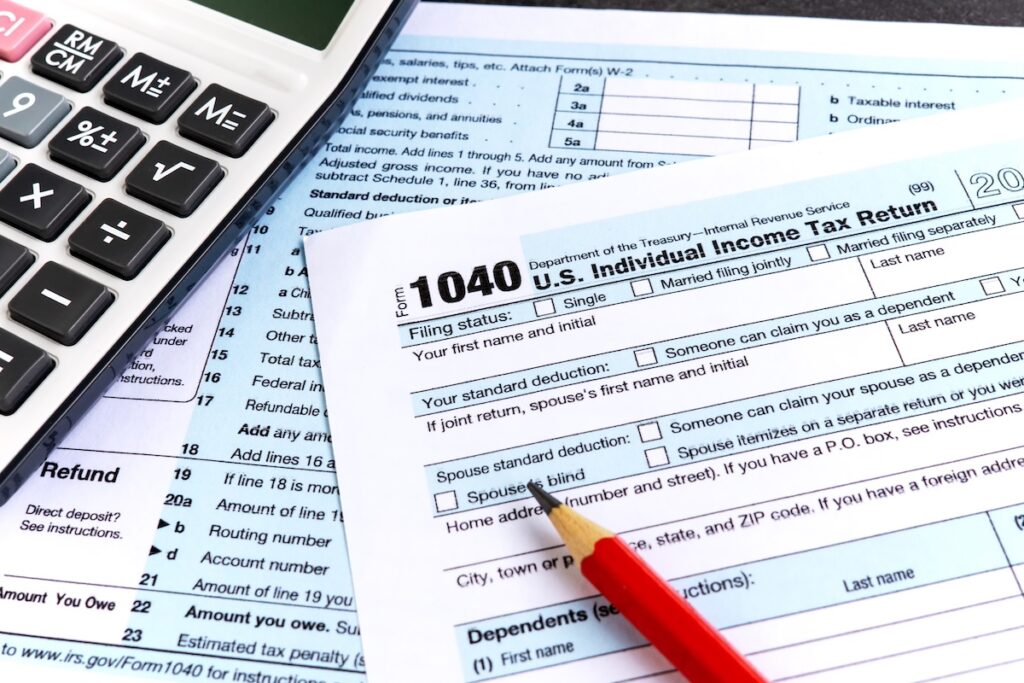The Tax Treaty Savings Clause: What US Expats Should Know
September 10, 2025 | Double Taxation | 4 minute read
Expat Tax Blog. Tax Tips for US Americans abroad.
Updated September 16, 2025
 All blogs are verified by Enrolled Agents and CPAs
All blogs are verified by Enrolled Agents and CPAs
Updated September 16, 2025

When Americans move abroad, one of the first things they often hear about is a tax treaty. But what is a tax treaty? Simply put, it’s an agreement between the US and another country that decides which one has the right to tax certain types of income, helping to minimize double taxation.
At first glance, a treaty may look like a golden ticket, ensuring you won’t get taxed twice on the same paycheck. But buried in nearly every US tax treaty is a small but powerful provision called the savings clause, and for American expats, it changes almost everything.
What Is The Savings Clause?
A savings clause is a standard provision in US tax treaties that essentially “saves” the US government’s right to tax its citizens and residents as if the treaty didn’t exist.
That doesn’t mean the savings clause wipes out the entire treaty. It mainly limits treaty benefits for US citizens and Green Card holders regarding certain types of income. In other words, Americans abroad often can’t rely on treaty provisions alone to reduce or eliminate double taxation unless the treaty carves out a specific exception.
Reusable Callout-Box
*For design changes please notify Dev Team.
*For bullet points please wrap text accordingly: (ul) *placeholderText* (ul)
One bulletpoint is defined by `(li)` > (ul) (li)bulletpoint1 (li)bulletpoint2 (ul)
Did You Know?
The US currently has income tax treaties with more than 60 countries.How the Savings Clause Works
In principle, the savings clause says the US can tax its citizens and residents as if the treaty didn’t exist. This applies to all income categories.
In practice, each treaty then lists exceptions where the savings clause does not apply. These carve-outs usually only cover Social Security payments, Alimony, childcare payments, and the double taxation relief provision.
Reusable Callout-Box
*For design changes please notify Dev Team.
*For bullet points please wrap text accordingly: (ul) *placeholderText* (ul)
One bulletpoint is defined by `(li)` > (ul) (li)bulletpoint1 (li)bulletpoint2 (ul)
Investment Income You Should Expect to Pay US Tax On
The US normally retains the right to tax your capital gains, dividends, and interest under the savings clause even if you live abroad. For example, if you sell stock or other investments while living in Germany, the US can still tax that gain, even if Germany also has taxing rights. In that case, you’d typically rely on the Foreign Tax Credit to offset your US taxes on that same income. Want to learn more?Read our full guide on capital gains for expats
Why It Matters More for Americans
Technically, the savings clause applies to both treaty partners. In reality, though, only the United States enforces it against its non-resident citizens, since most countries tax based on residency rather than citizenship.
Reusable Callout-Box
*For design changes please notify Dev Team.
*For bullet points please wrap text accordingly: (ul) *placeholderText* (ul)
One bulletpoint is defined by `(li)` > (ul) (li)bulletpoint1 (li)bulletpoint2 (ul)
Did You Know?
Most countries don’t tax their non-resident citizens. For example, France doesn’t tax a French citizen who moves permanently to Germany. The US, however, is one of only two countries that use a citizenship-based tax system, which makes the savings clause uniquely important for Americans abroad.Avoiding Double Taxation Under a Tax Treaty
Even when the savings clause applies, treaties still play an important role by assigning primary taxing rights to one country. That assignment matters because it allows you to use IRS expat tools like the Foreign Tax Credit (FTC), which gives you a dollar-for-dollar credit for income taxes you’ve already paid abroad. You can generally offset the same amount of US tax on the same foreign income.
In some cases, you may also qualify for the Foreign Earned Income Exclusion (FEIE), which lets you exclude a portion of your foreign salary from US taxation altogether.
Bottom line: Treaties don’t create your eligibility for the Foreign Tax Credit (FTC), but they make sure you can actually use it. By clarifying which country taxes first, treaties prevent overlaps (both countries taxing the same income) and gaps (no creditable foreign tax). Without that, you could end up paying more to the IRS.
Reusable Callout-Box
*For design changes please notify Dev Team.
*For bullet points please wrap text accordingly: (ul) *placeholderText* (ul)
One bulletpoint is defined by `(li)` > (ul) (li)bulletpoint1 (li)bulletpoint2 (ul)
FEIE Limit for 2025
The Foreign Earned Income Exclusion (FEIE) lets you exclude up to $130,000 of foreign income in the 2025 tax year. To qualify, you must meet either the Physical Presence Test or the Bona Fide Residence Test.Conclusion
Even though most Americans abroad never end up paying much, or sometimes any, US tax thanks to tools like the FTC and the FEIE, the savings clause still matters. It’s what allows the US to keep taxing its citizens and Green Card holders, no matter where they live. That means filing a US return every year isn’t optional, even if foreign tax credits wipe out your US liability.
For expats, the real impact of the savings clause isn’t always higher taxes; it’s the ongoing obligation to report your income to the IRS and make sure you’re claiming the credits or exclusions that prevent double taxation.
Let MyExpatTaxes Help!
MyExpatTaxes makes expat taxes easy. Our software is simple to use and designed specifically for Americans abroad, while our trusted team of Tax Professionals is here to back you up. We ensure you stay compliant while helping you claim every expat tax benefit available, so you never pay more than you owe. And if you’re behind on filing, we can guide you through the Streamlined Filing Procedures to catch up without unnecessary penalties.
Frequently Asked Questions
Content of the Accordion Panel
Not necessarily. You’ll almost always need to file a return, but whether you owe depends on your situation. Most expats use the Foreign Earned Income Exclusion (FEIE) or the Foreign Tax Credit (FTC) to reduce or eliminate their US tax bill.
Content of the Accordion Panel
Because the US taxes based on citizenship, not just residency. The savings clause ensures that treaties don’t allow Americans to sidestep that rule and stop paying US taxes altogether.
Content of the Accordion Panel
Yes. Many treaties carve out exceptions for Social Security, alimony, childcare payments, and double taxation relief provisions. These exceptions let Americans abroad actually benefit from certain treaty protections and the ability to claim foreign tax credits to prevent double taxation.
Content of the Accordion Panel
The savings clause limits treaty benefits for citizens, while the FEIE and FTC are written into US law and apply regardless of the treaty. In practice, most Americans abroad rely on the FEIE or FTC to prevent double taxation, not the treaty itself.
Content of the Accordion Panel
Start by checking the text of the treaty with your host country and reading the savings clause carefully. If unclear, a Tax Professional or a platform like MyExpatTaxes can help you determine whether an exception applies and which credits or exclusions you should claim.
Content of the Accordion Panel
A tax treaty is an agreement between the US and another country that decides which one has the right to tax certain types of income. The goal is to reduce or eliminate double taxation.
See Why US Expats From Around the World Love Us!
Easily file regardless of how complex your US expat tax situation is.
Been here before? Sign in!


Written by Nathalie Goldstein, EA
Nathalie Goldstein, EA is a leading expert on US taxes for Americans living abroad and CEO and Co-Founder of MyExpatTaxes. She contributes to Forbes and has been featured in Forbes, CNBC and Yahoo Finance discussing US expat tax.
September 10, 2025 | Double Taxation | 4 minute read







